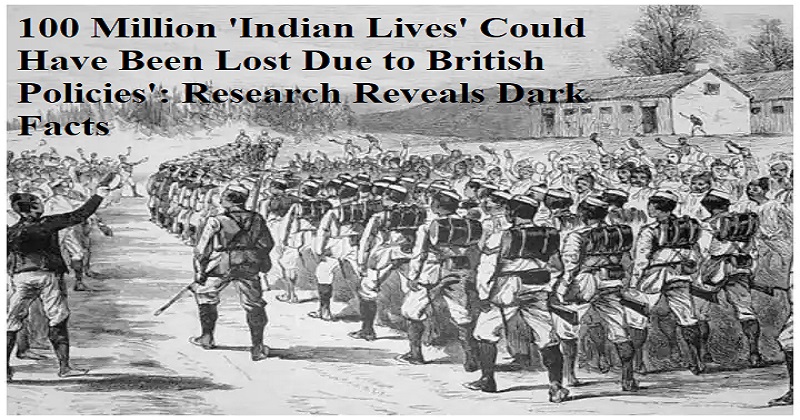
The British colonialism in India led to the death of over 100 million people in 4 decades from 1880 to 1920. The study found that extreme poverty was unusual and only appeared during periods of profound social and economic turmoil, particularly during colonialism. As capitalism has developed since the 16th century wages have fallen below subsistence levels and human height has declined. Native populations in parts of South Asia, Sub-Saharan Africa, and Latin America have not yet fully recovered.
More than 50 million extra deaths occurred under British colonialism between 1891 and 1920, taking the count of total deaths caused by imperialism to above 100 million. The authors estimated the number of individuals who perished throughout four horrific decades from the 1880s to the 1920s. It is a scathing indictment of the British colonialism and grim realisation for apologists who yearn for Britain’s colonial legacy.
Between 1880 and 1920, during the height of British colonialism, around 100 million individuals died before their natural age. This is one of the most severe policy-caused mortality crises in human history. It exceeds the total number of fatalities from all famines in the Soviet Union, Maoist China, North Korea, Pol Pot’s Cambodia, and Mengistu’s Ethiopia.
The colonial regime virtually abolished Indian tariffs, allowing British goods to flood the domestic market. It also established a system of absurdly high taxes and internal duties that prevented Indians from selling, let alone exporting, textiles within their own nation. India’s industries were wiped out by this unjust trade policy, thus deindustrializing it. The British were ruthless in implementing the drain, compelling India to export grain even when drought or floods endangered domestic food security.
Colonial authorities were fully aware of the implications of their actions, yet they did nothing while millions of people went without food and refused to make any changes. They kept denying them necessities for basic survival out of pure malice. Reparations have a long history in international law, and the study’s authors presented a strong case for them. While reparations can help address the legacy of hardship and unfairness left by colonialism as a crucial step toward justice and reconciliation, they cannot undo history and erase the misdeeds of the British empire, according to their argument.

Post Your Comments